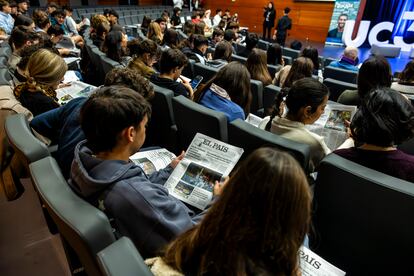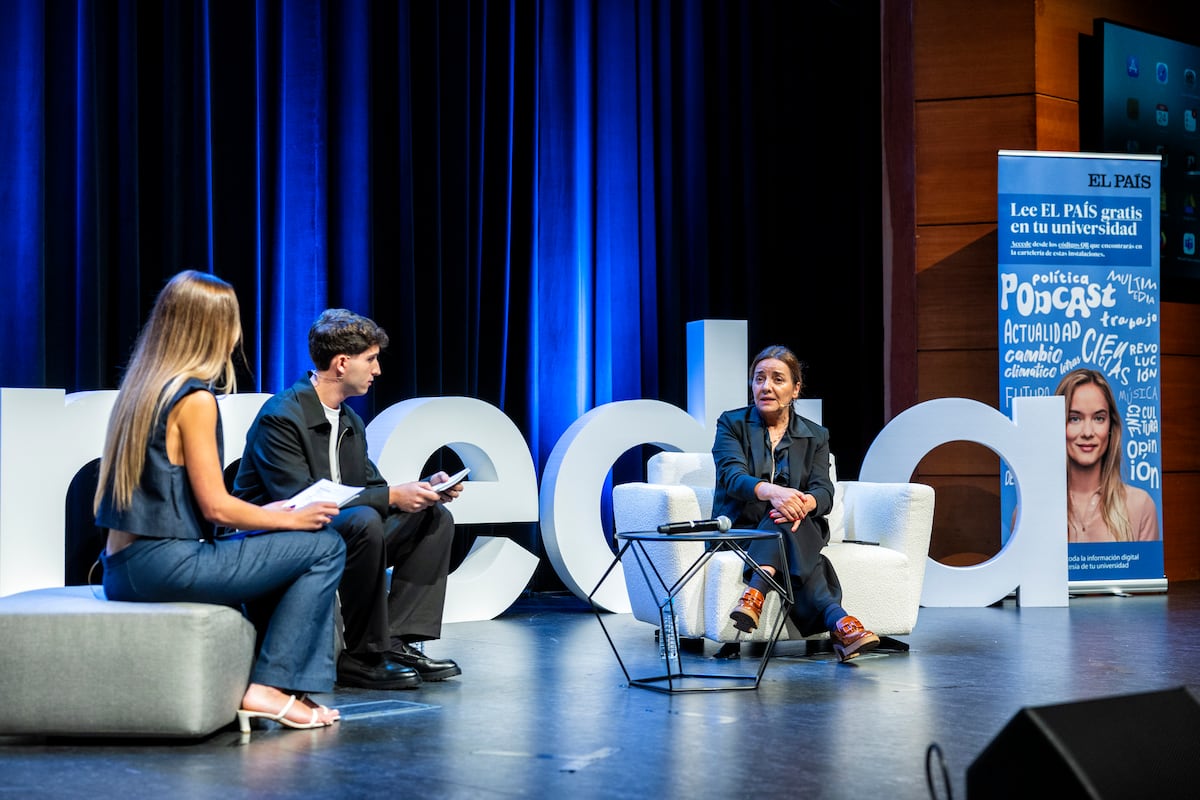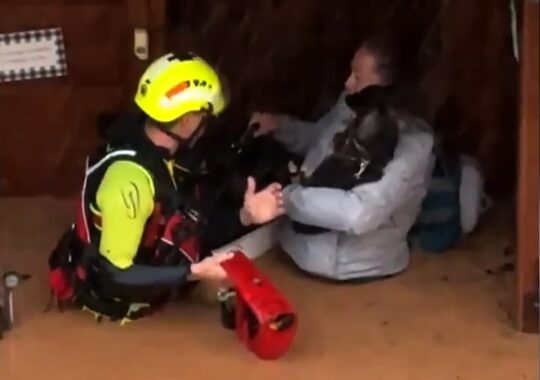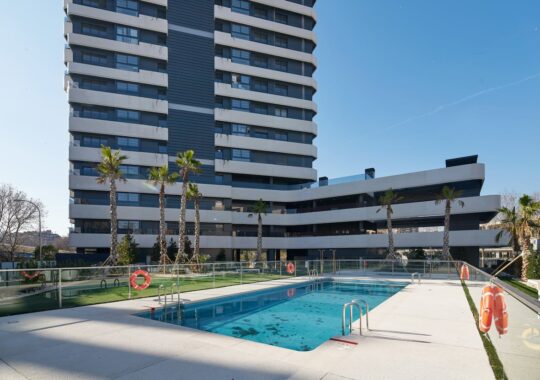The Aula Magna of the rectorate of the Carlos III University of Madrid left a very unusual image this Monday: hundreds of young people with a paper newspaper, EL PAÍS, in their hands. The director of the newspaper, Pepa Bueno, participated in an event with more than 300 students who queued from nine in the morning to listen to the journalist talk about the keys to the job, but also about the crisis suffered by the sector or the dreams of young reporters. Faced with the pessimistic current in the current ecosystem, Bueno encouraged the students to persevere responsibly: “You will have to do the journalism of the future, you will make mistakes, but you will do it well.”
The students themselves were in charge of organizing the event, in collaboration with the digital subscription platform for entities and companies EL PAÍS Professional, in which they served as presenters, producers or photographers. In addition to learning how a global newspaper like EL PAÍS works, with more than 400 professionals around the world, the students were concerned about the difficulty of practicing the profession at a time when communication channels abound and where confrontation attracts to a larger audience than many transcendental news. “The confusion between journalism and communication is a challenge,” acknowledged Bueno, who, at the same time, pointed out that it is also “an opportunity for journalism to vindicate itself.” The director stressed that, in the face of pseudomedia, the profession has firm protocols. “And we can make mistakes, but we cannot lie,” he stressed on several occasions.
The complex outlook for the profession, with an economic crisis, but also a crisis of credibility, was addressed during the talk. “Quality journalism is expensive, but it has nothing to do with the social responsibility of the profession,” the director recalled. He opted for a triple transparency exercise: professional, to tell how journalism is done; editorial, so that the values of the newspaper are known; and financial, since it is considered essential that readers know who finances the media.

Regarding the noise and tension fueled by social networks and some platforms, Bueno wanted to distance himself, clarifying that EL PAÍS cannot fall into these “shortcuts”, but neither can it treat its readers in a binomial way: “We have a social responsibility with the citizens, to tell them that the world is not black or white.” Although he defended that newspapers must remain faithful to their values, he indicated that one cannot fall into “comfort bubbles” and that the newspaper pages must have signatures that contradict the editorial line and show diverse opinions.
The director closed the event with a message of encouragement to the students, reminding them that the future of journalism is in their hands and that the dignity of the profession will depend on them.
EL PAÍS Professional
This meeting is part of the EL PAÍS Profesional project, the platform that improves the digital subscription proposal for companies and entities. It is aimed at both the public sector, including educational, social or cultural institutions, as well as the business sector and communication agencies. More than twenty universities in Spain are associated with this platform and, thanks to this, more than 642,000 students have free access to EL PAÍS information through a QR code.
Furthermore, this year the rapprochement between university life and the newspaper’s editorial life has been strengthened, organizing meetings such as the one with the director in Madrid; that of the editor-in-chief of EL PAÍS Audio, Silvia Cruz Lapeña, at the Miguel Hernández University of Elche; or that of the journalist Ana Fuentes at the University of Zaragoza.




